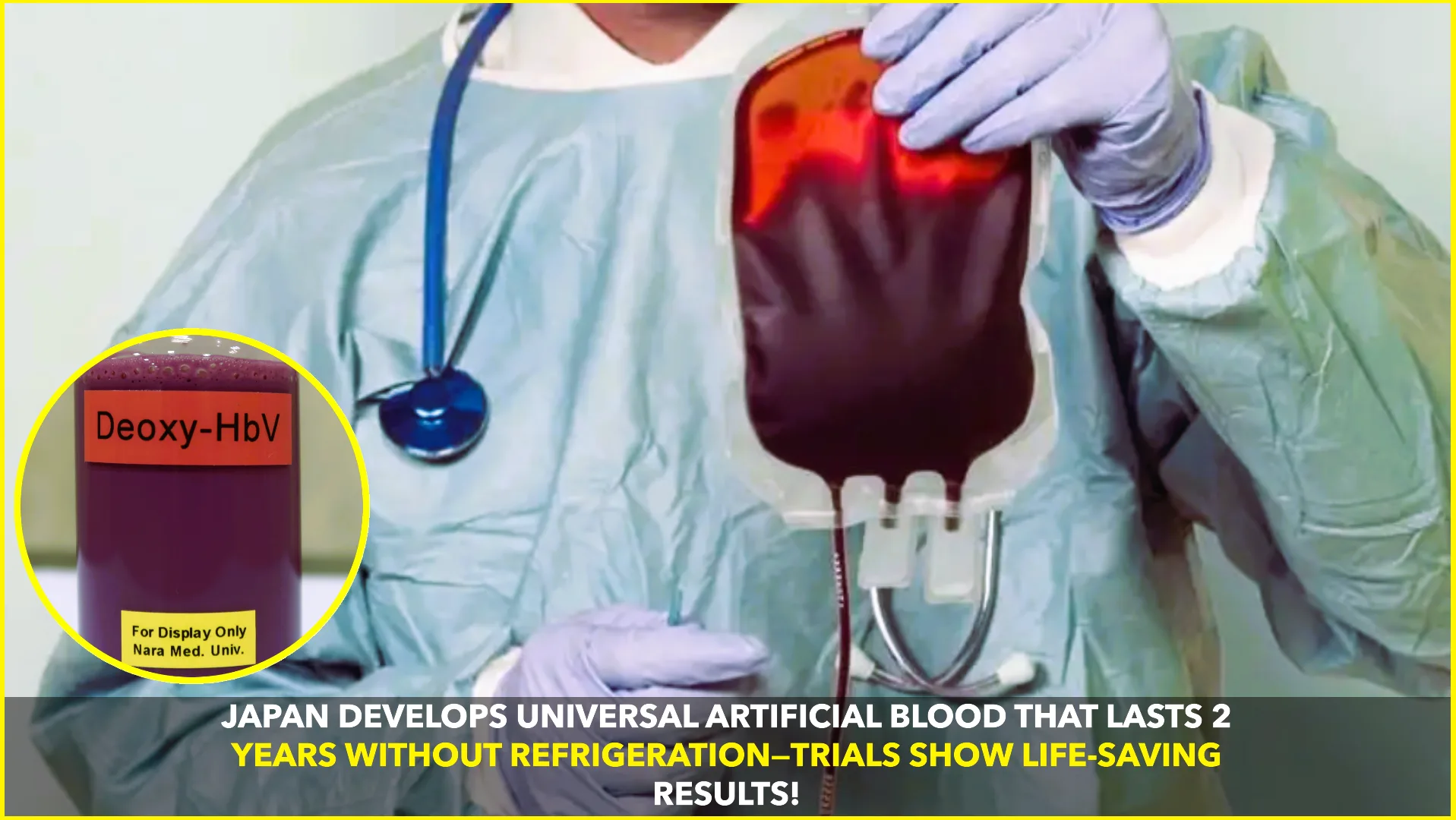Japanese scientists have achieved a significant breakthrough in medical science by developing a universal artificial blood that remains stable at room temperature for up to two years. This innovation has the potential to revolutionize emergency medical care, especially in remote or disaster-stricken areas where access to compatible blood supplies is limited.
A Universal Solution to Blood Shortages
The artificial blood, developed by researchers at Nara Medical University, is designed to be compatible with all blood types. This eliminates the need for blood type matching, a process that can delay critical transfusions. Moreover, unlike traditional blood, which requires refrigeration and has a shelf life of about a month, this synthetic alternative can be stored at room temperature for up to two years, significantly easing storage and transportation challenges .
Composition and Development
The artificial blood comprises hemoglobin extracted from expired donated blood, encapsulated within lipid membranes to form hemoglobin vesicles. These vesicles mimic the oxygen-carrying function of natural red blood cells. Additionally, synthetic platelets are included to facilitate blood clotting. This composition ensures that the artificial blood can perform the essential functions of natural blood without the associated risks of immune reactions or disease transmission .chuo-u.ac.jp+8Market Insight+8PMC+8The New Yorker+1Al Jazeera+1TheBrewNews.com+1Wikipedia+1
Promising Preclinical Trials
In preclinical trials involving rabbits with severe blood loss, the artificial blood demonstrated a survival rate comparable to that of natural blood transfusions. Notably, no adverse effects such as blood clotting or immune reactions were observed, indicating a promising safety profile .
Upcoming Clinical Trials
Building on these encouraging results, the research team plans to initiate clinical trials by March 2025. The initial phase will involve administering varying volumes (100 to 400 milliliters) of the artificial blood to 16 healthy adult volunteers to assess safety and tolerability. If successful, subsequent phases will evaluate the efficacy of the artificial blood in patients requiring transfusions .
Addressing a Critical Need
Japan faces a growing challenge in maintaining adequate blood supplies due to an aging population and declining donor numbers. The development of a universal, shelf-stable artificial blood offers a viable solution to this issue, ensuring that life-saving transfusions can be administered promptly, even in resource-limited settings.Market Insight+2Mainichi+2ScienceJapan+2
Global Implications
The implications of this advancement extend beyond Japan. Globally, many regions struggle with blood shortages and the logistical difficulties of storing and transporting blood. A universal artificial blood that is easy to store and administer could significantly enhance emergency medical response capabilities worldwide, particularly in areas affected by conflict, natural disasters, or lacking robust healthcare infrastructure.
As the clinical trials progress, the medical community remains hopeful that this innovation will lead to a new era in transfusion medicine, where synthetic blood products can reliably supplement or even replace donor blood, saving countless lives in the process.










